A Decade of Addressing the World's Most Pressing Challenges
Duke scholars work to find solutions to challenges both in our own community and beyond
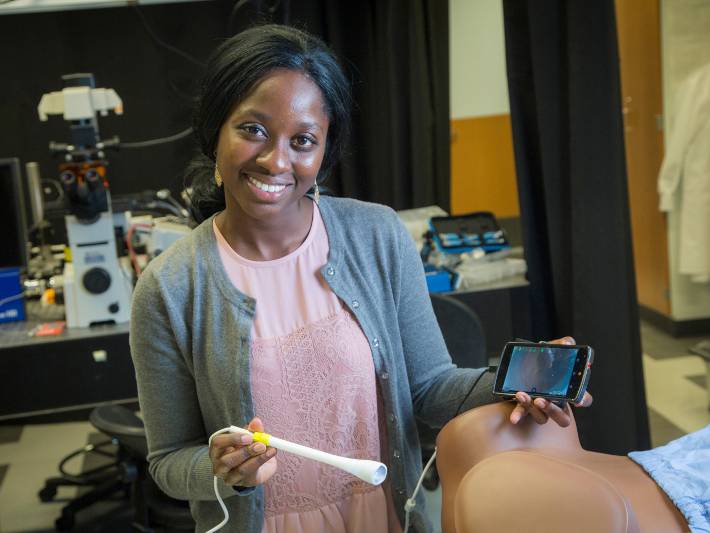
DUKE EXPERT HELPS SPEARHEAD STATE'S NEW WATER-TESTING PROGRAM
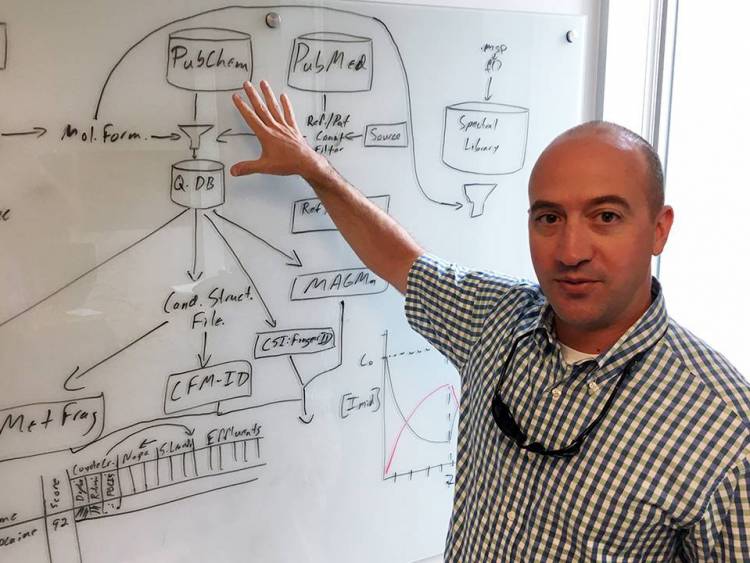
After the discovery of a chemical contaminant called GenX in the Cape Fear River and Wilmington’s drinking water, North Carolina launched one of the world's most ambitious testing programs with the help of Duke analytical chemist Lee Ferguson. Ferguson not only helps conduct the analysis but also aided in designing the testing system and got state government fundng to support it.
The Rise of the Duke Polarization Lab
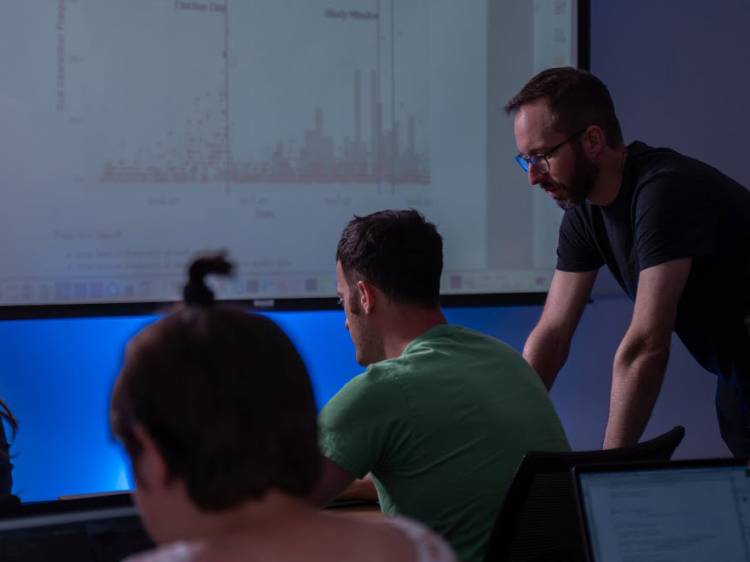
The Polarization Lab at Duke brought together scholars from the social sciences, statistics, and computer science to develop new technology to bridge America’s partisan divide.
Duke Cookstove Initiative Tackles Global Environmental Health Issue
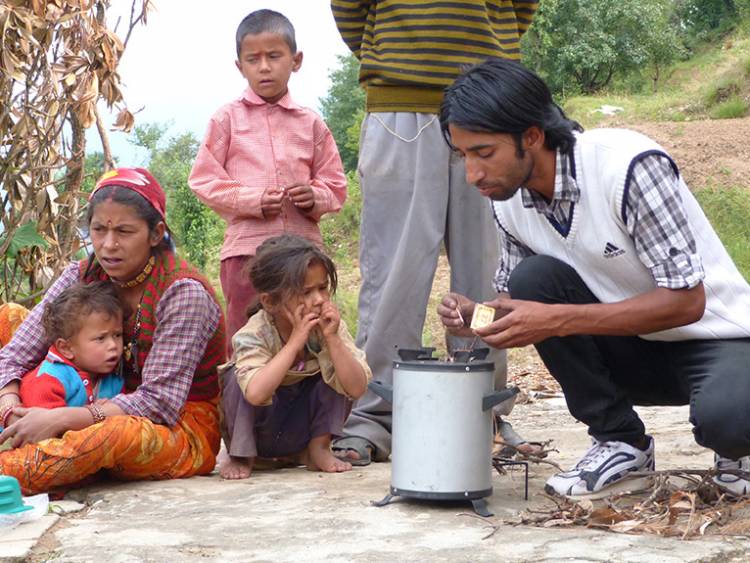
Nearly two million people, mostly women and children, die each year due to the environmental effects of cooking with fuels like wood or charcoal on poorly functioning stoves or open fires. Deaths due to acute and chronic illnesses like pneumonia can be prevented with cleaner cookstoves. Researchers from the Duke Cookstoves Initiative -- a cross-campus collaboration between social scientists, biomedical researchers and environmental scientists -- are addressing the benefits of improved cookstoves and what it takes for people in the developing world to adopt them.
Seeking a ‘Safe and Dignified Solution’ to the Sanitation Crisis
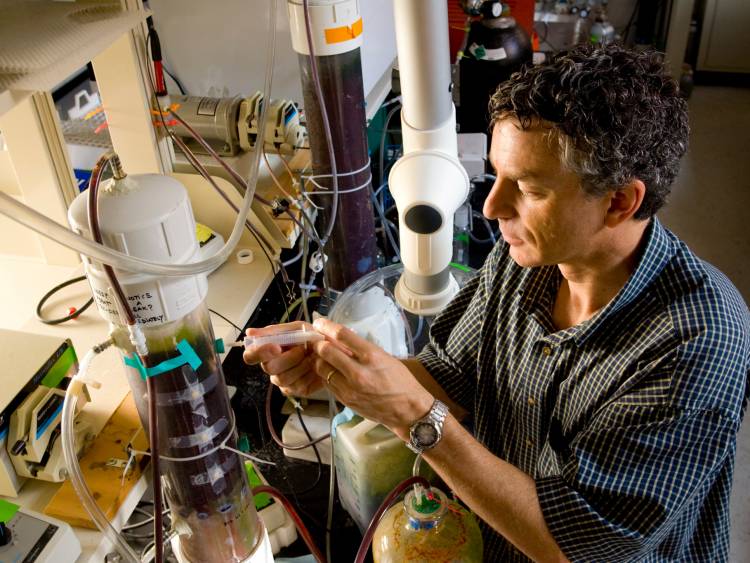
Duke has become a hub of research to improve the way the world protects people and water from human waste. A recipient of multiple grants from the Bill & Melinda Gates Foundation, the Center for WaSH-AID and two emerging technologies hope to reshape the lives and health of billions of people both worldwide and at home.
New Tech Promises Easier Cervical Cancer Screening
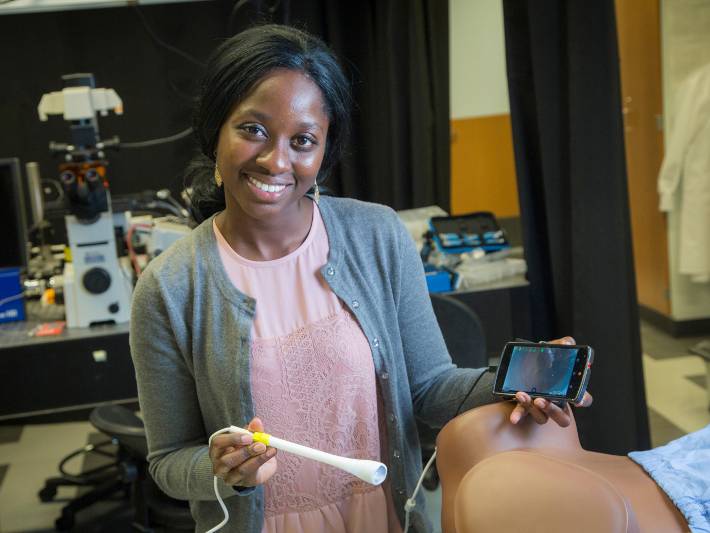
Duke researchers developed a handheld device for cervical cancer screening that promises to do away with uncomfortable speculums and high-cost colposcopes. The “pocket colposcope” is a slender wand that can connect to many devices, including laptops or cell phones. If widely adopted, women might even use the device to self-screen, transforming screening and cure rates in low-income countries and regions of the United States, where cervical cancer is most prevalent.
Duke Vaccine Institute Plays Integral Role in National Effort to Improve Flu Shots
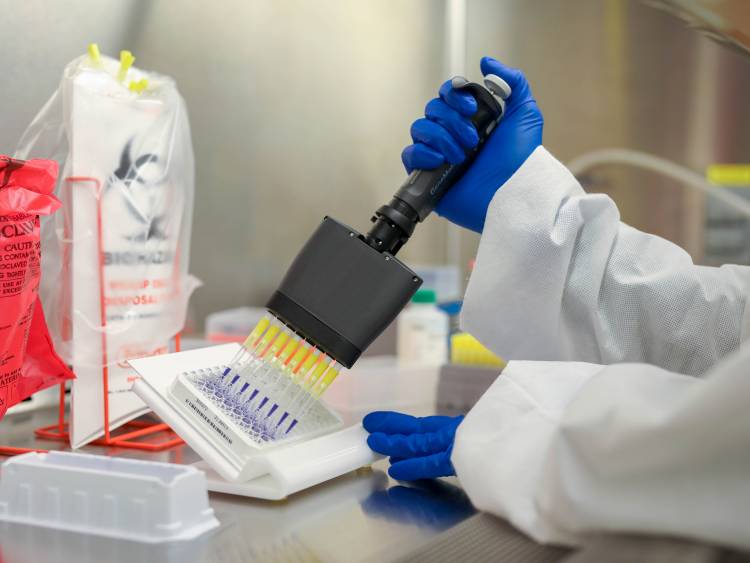
Since current flu vaccines do not protect against all varieties of the virus and require new formulations each year, the Duke Human Vaccine Institute (DHVI) is part of an ambitious initiative under the National Institute of Allergy and Infectious Diseases (NIAID) aimed at developing a longer-lasting, more broadly protective vaccine to replace the seasonal flu shot. In addition, the DHVI remains at the lead of the nation’s effort to develop an HIV vaccine.
Duke Divinity School initiative calls on churches to help stem the opioid epidemic

Duke Divinity's Theology, Medicine and Culture Initiative led research on the challenge of responding well to pain in light of the opioid crisis. With a particular interest in how Christian tradition speaks to this practical problem for people in pain, their communities and their clinicians, the research culminated in a March 2019 symposium and in the publication of a practical guidebook about the epidemic for clergy and lay people.